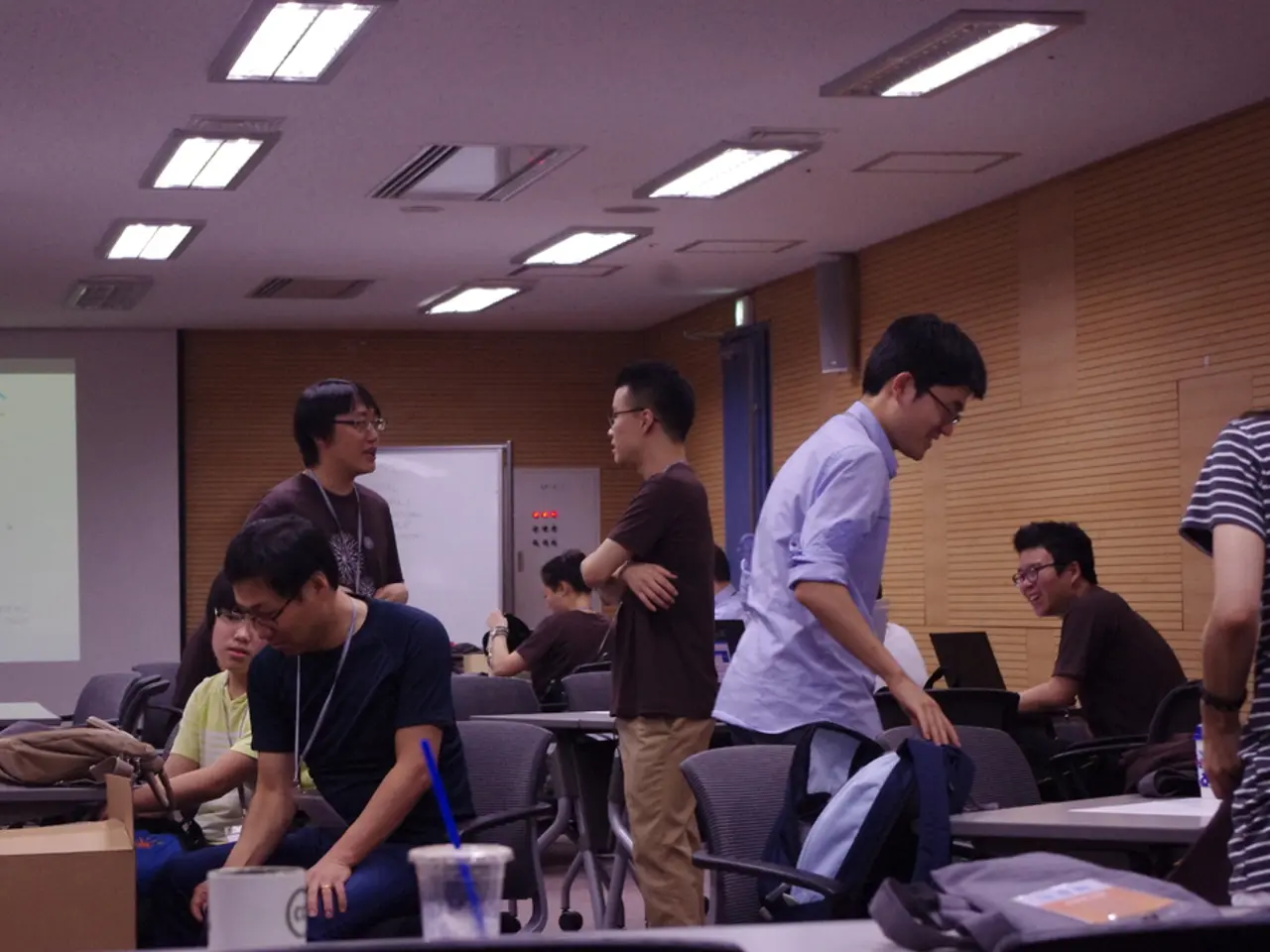Methods for Mastering English via Authentic Practical Applications
Simulation-based learning is revolutionising the way we learn English, offering a unique approach to improve language skills, cultural understanding, and critical thinking abilities. By incorporating varied activities and global collaboration, this method has proven to be an effective tool for English language learners.
Embracing Technology for Enhanced Simulations
The integration of technology plays a pivotal role in enhancing simulations. Embracing technology provides opportunities for more immersive experiences, such as virtual reality (VR) and augmented reality (AR), and global collaboration through language learning apps. These tools offer engaging, interactive environments that break geographical barriers.
Real-World Simulations: Practical English Usage
Real-world simulations are structured activities that replicate authentic English-speaking scenarios. These simulations equip learners with the ability to communicate effectively, think critically, and solve problems. One of the primary benefits of real-world simulations is the improvement of conversational skills, providing opportunities for engaging in meaningful dialogues.
Simulated Conversations with AI Chatbots
Tools like ChatGPT and Gemini allow learners to engage in realistic dialogues that mimic everyday, professional, or travel scenarios. This dynamic interaction exposes users to native sentence structures, idioms, and vocabulary, enhancing fluency and communication confidence. Learners can also receive immediate feedback and corrections to refine their language use in real time.
Immersive Technologies: VR and AR
Virtual and augmented reality platforms provide immersive environments where learners practice language skills in culturally rich contexts without physical travel. This virtual immersion deepens cultural understanding by situating conversations in authentic scenarios such as job interviews or social settings, fostering practical language application and intercultural competence.
Interactive Problem-Solving Simulations and Apps
Using interactive, gamified apps that simulate real-world challenges helps users engage in structured reasoning, analyze multiple perspectives, and apply logic. These activities develop critical thinking by encouraging learners to identify patterns, question assumptions, and make decisions in complex situations. Progressive puzzle complexity and scenario exploration further sharpen problem-solving abilities, transferable beyond academic settings to daily life and work.
Mobile and Problem-Based Learning Integration
Combining mobile learning with problem-based learning (PBL) through simulations enhances students’ action competence by engaging them actively in solving authentic problems. This approach fosters adaptability, strategic thinking, and deeper cognitive engagement.
Psychologically Grounded Simulated Learners
Advanced frameworks simulate different learner profiles to study and optimise learning dynamics. Such realistic modeling helps tailor teaching strategies that promote sustained cognitive growth and self-efficacy, which can be translated into better educational outcomes in real environments.
In summary, effective implementation involves creating interactive, context-rich simulation experiences that combine conversational AI for language and culture, immersive VR/AR for contextual learning, and problem-solving games or PBL for cognitive skill development. These simulations offer immediate feedback, culturally relevant scenarios, and progressively challenging problems that collectively improve linguistic competence, cultural insight, and analytical thinking abilities.
For those eager to start their journey with simulation-based language learning, exploring resources and seeking opportunities for engagement is the next step. Mastering English through innovative approaches like real-world simulations offers advantages for both personal growth and professional success. Real-world simulations aim to prepare learners for diverse real-life scenarios, making them more adaptable and competent English communicators. Simulations help learners gain fluency, confidence, and the ability to think critically and respond appropriately in diverse situations. Lastly, simulations embed cultural elements, fostering cultural awareness and sensitivity.
The incorporation of technology, particularly language learning apps, VR, AR, and conversational AI like ChatGPT and Gemini, can enhance simulation-based learning for English language learners, providing immersive, interactive environments that replicate real-world conversations, deepen cultural understanding, and improve language skills. Additionally, lifelong learning in cybersecurity, technology, education-and-self-development, and learning can be optimized through the application of these advanced simulation techniques, fostering critical thinking, problem-solving skills, and holistic personal growth.




